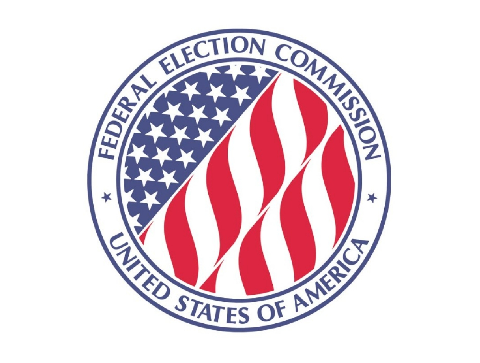PDF of comments available here
Via Electronic Submission
Federal Election Commission
Attn: Robert M. Knop, Assistant General Counsel
1050 First Street N.E.
Washington, D.C. 20463
Re: Notice 2018-16, Rulemaking Petition: Definition of Contribution
Dear Commissioners:
On behalf of the Institute for Free Speech (“Institute”),[1] we respectfully submit the following in response to the Federal Election Commission’s (“FEC” or “Commission”) request for comments on a rulemaking petition filed by the Institute on August 27, 2018. As we noted in that request, a rulemaking as to the definition of “contribution” is essential to ensure that the FEC’s regulations do not “fail to accurately reflect the law, give needed guidance to non-profit groups and citizens, or protect those same groups and individuals from the threat of third party complaints.”[2]
* * *
The Commission’s notice focuses on the Institute’s discussion of Citizens for Responsibility and Ethics in Washington v. Federal Election Commission.[3] As our previous comments noted, that decision “held that the [then existing] regulation impermissibly narrowed § 30104(c)(2)(C) when it required that speakers disclose only those donors who earmarked their contributions for a particular communication, rather than all donors who earmarked their contributions to support or oppose a specific candidate, regardless of the specific communication.”[4] The district court also properly held that it was bound by Buckley v. Valeo,[5] the Supreme Court’s “seminal campaign finance case.”[6]
While the Commission’s notice correctly characterized the Institute’s petition as a response to the CREW case, it unfortunately truncated the Institute’s rationale for a rulemaking. The district court’s ruling determined that “subsection (c)(1) requires disclosure of ‘only those donors contributing…for political purposes to influence any federal election.’”[7]
The Institute believes that “[e]ven” a definition “limited by Buckley’s ‘political purposes’ language…would still unconstitutionally chill political speech.”[8] As the petition noted, in 1995 the U.S. Court of Appeals for the Second Circuit determined that the phrase “political purposes” involved inherent “‘hazards of uncertainty’…because it was ‘not explained in Buckley’…a problem because the phrase…could encompass all the ‘issue-advocacy activities’ engaged in by many educational, charitable, scientific, and even religious nonprofits, even when their activities are not ‘unambiguously related to the campaign of a particular federal candidate.’”[9]
This vagueness can only be remedied by explicitly declaring that, for entities other than political committees, “contributions” are “only donations given for the express purpose of being used specifically for express advocacy, or in response to express and unambiguous solicitations for that purpose.’”[10]
Consequently, the Institute’s petition noted that a narrow “rulemaking as to 52 U.S.C. § 30104(c) is not sufficient,”[11] even if the “district court in CREW stated that ‘[t]he defects [regarding 52 U.S.C. § 30104(c)] may be promptly readily remedied by the FEC promulgating a new rule in accordance with the statute.’”[12] Rather, “even with corrections regarding 52 U.S.C. § 30104(c), the current definition of contribution under 11 C.F.R. § 100.52(a) incorrectly categorizes too many donations as contributions when they are not, misleading speakers and increasing the risk of reporting errors.”[13]
The CREW decision poses a dilemma. Certainly, the Commission could “promptly”[14] alter its rules to cabin reporting to contributions made “for political purposes.” This would be an improvement, but it would only invite further demands for clarity, either in the form of advisory opinion requests or future lawsuits brought by organizations fearing that this language will invite “the expense and indignity of investigations, whether by this Commission or through third-party litigation, intended to probe their subjective intentions.”[15] Other groups, inevitably, will decline to financially participate in civil society rather than hazarding such a process.
The Commission is “[u]nique among federal administrative agencies” because its “sole purpose is the regulation of core constitutionally protected activity.”[16] Accordingly, it should be particularly sensitive to concerns that its regulations will impose constitutional harm or chill speech and association. The Institute hopes that the Commission does not consider this petition a mere reaction to the CREW case, but also as an opportunity to act with preclusive effect, avoiding future constitutional issues while imposing a clear and unambiguous rule.[17]
To the extent that the Commission cannot act on the petition, it should request that Congress redraft the Federal Election Campaign Act to specifically incorporate the Buckley decision. Such a housekeeping rewrite of federal law would help prevent future litigation by expressly codifying the major purpose test and limiting disclosure requirements to unambiguously political activity.
Respectfully submitted,
Allen Dickerson
Zac Morgan
Institute for Free Speech
[1] The Institute is a nonpartisan, nonprofit § 501(c)(3) organization that promotes, protects, and defends the First Amendment rights of speech, press, assembly, and petition. Originally known as the Center for Competitive Politics, it was founded in 2005 by Bradley A. Smith, a former chairman of the Commission. In addition to scholarly and educational work, the Institute is actively involved in targeted litigation against unconstitutional laws at both the state and federal level.
[2] Allen Dickerson and Owen Yeates, Petition for Rulemaking to Revise 11 C.F.R. § 100.52 (“Petition”) at 1, Institute for Free Speech, Aug. 27, 2018, available at: https://www.ifs.org/wp-content/uploads/2018/08/2018-08-27_Dickerson-Yeates-Comments_FEC_Petition-For-Rulemaking-To-Revise-11-C.F.R.-%C2%A7-100.52.pdf.
[3] 316 F. Supp. 3d 349 (D.D.C. 2018) (“CREW”).
[4] Petition at 2.
[5] 424 U.S. 1 (1976) (per curiam).
[6] Ariz. Free Enter. Club’s Freedom Club PAC v. Bennett, 564 U.S. 721, 757 (Kagan, J., dissenting).
[7] Petition at 3 (quoting CREW, 316 F. Supp. 3d at 400, emphasis supplied)
[8] Petition at 4.
[9] Petition at 4 (quoting Fed. Election Comm’n v. Survival Educ. Fund, 65 F.3d 285, 294, 295 (2d Cir. 1995) and Buckley, 424 U.S. at 80).
[10] Petition at 5.
[11] Petition at 5.
[12] Petition at 5 (quoting CREW, 316 F. Supp. 3d at 414, second set of brackets supplied).
[13] Petition at 5.
[14] CREW, 316 F. Supp. 3d at 414.
[15] Petition at 5.
[16] Am. Fed’n of Labor-Congress of Indus. Orgs. v. Fed. Election Comm’n, 333 F.3d 168, 170 (D.C. Cir.2003).
[17] Petition at 3 (“…only donations given…”)














